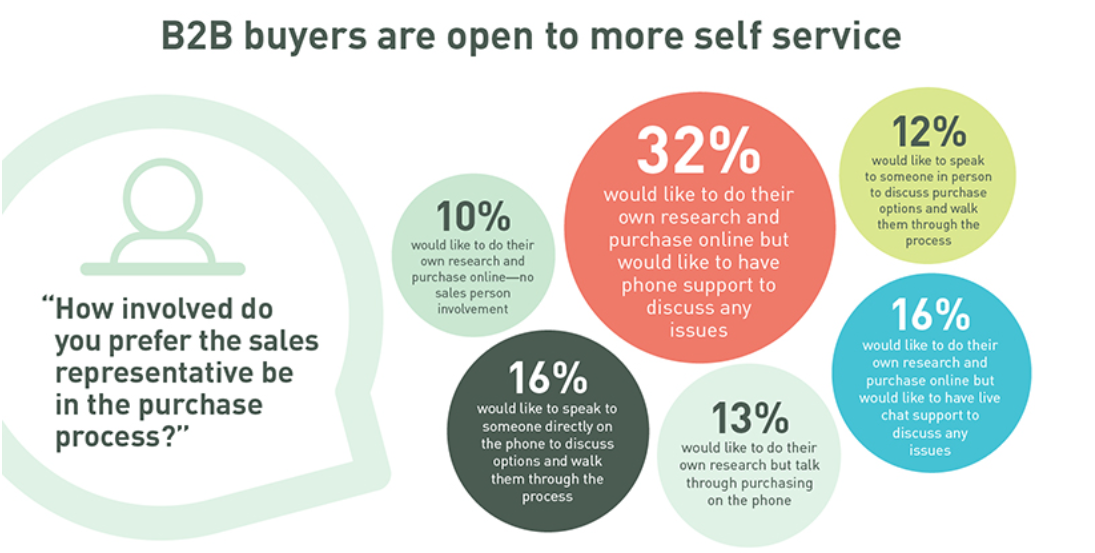At this year’s AED Summit, I ended up in the same
conversation several times. It took one
of two forms. First, the question was
raised, what is the role of the sales rep at dealerships in the future? The
second, even more blunt, do sales reps still have a use? If they do have a use, what is it?
Let’s start off by saying, absolutely, sales reps are still
important and will likely remain important.
Yet, the fact that these questions are being asked suggests
the role of the sales rep must change. When
I spoke to dealers, reps and even some customers, over the course of the event,
it became clear that customers are changing.
Modern customers, typically next generation owners or their buyers, have
no use for the coffee-bringing and unprepared
rep that comes for a chat and to ask “do you need anything”. Customers now have access to all the
information they need about the equipment they are interested in. From numerous websites, social media and
videos a contractor can research to their heart’s content. They find specifications, performance review,
instructional videos and opinions. They
use this information to make their purchase decision, often without the need or
involvement of a sales rep. In a 2014 survey
by the Acquity Group, only 12% of all respondents wanted to see a sales rep. The rest wanted to do their research and get
various forms of on demand support. Imagine
how much that has changed in 8 years and with Covid’s acceleration to digital.
When I was responsible for parts in service in Canada years
ago, I loved getting invited by sales reps to meet their customers. When we
arrived, conversation was always lively, with customers expressing their
problems and concerns and we were able to discuss solutions. Sometimes these meetings took several hours
but there was always value. I started to realize that customers were busy,
knew their business and valued their time.
When the conversation was valuable customers were happy to receive us,
if not, they had work to get back to. It’s
this question of value, the value we bring when we visit the customer that is
changing the role of the sales rep. Providing value gives us access to the
customer’s time and allows us to build a relationship.
Years ago, sales reps were the ones with product training
and access to specifications and brochures.
Their value derived from having access to information that customers
didn’t have available. As the internet
has taken over a huge part of that role, the value of brochure bearing sales
reps has dwindled. The new opportunity is
the role of Trusted Advisor. This role
can focus on different aspects of the customer’s business, but typically it’s
based on providing customers with a more in-depth understanding of their
equipment and fleet in the context of their business. For the
sales rep it’s a golden opportunity to develop a richer relationship with
customers, by bringing more value to their customers, but with a new
perspective.
For dealers and manufacturers this transition comes with
several challenges. The first is recognizing
the change is happening and unavoidable. Second it will require restructuring and
retraining salespeople and finally dealers will have to become more knowledgeable
about their customer’s business and put information in place to allow salespeople
to bring new valuable insights to their customers.
This first challenge might be the hardest, it’s one caused
by a generational and expectation gap between senior leaders at dealership and
the age and expectations of the buyers and decision makers at their
customers. If dealers continue to
believe their customers think and act the way they used to, they will make the
mistake of continuing old sales models. They
risk continuing to provide sales teams with only modest product training and nothing
of further value and they risk having customers who see no value in the sales
rep or the dealership.
Once dealers and manufacturers wake up to the new reality of
their customer’s expectations, the second challenge begins. It starts with redefining the role of salespeople,
it means recognizing the new and changing channels of communication customers
prefer and identifying the areas of knowledge reps need to be trained in. To some degree this will require sales teams
with different backgrounds and skillsets.
They will have to be able to understand construction, contracting and fleet
finance. Dealers will have to invest in more
training than in the past.
Finally, after recognizing the change, dealers, with the
support of manufacturers, will need to create tools and information that
exceeds the capabilities of their customers. These tools will need to be
accessible to salespeople in real time, as customers are more informed and want
to transact faster. The information will
have to give the sales rep and the customer new insights into fleet management,
finance, and project or production costs.
Armed with this information the rep will continue to be a valuable resource
for their customers. They will continue
to be welcome.
Once implemented, this new role for dealers and reps will
provide even deeper relationships, not only based on friendship and
personality, but on knowledge and understanding. For those dealers that make this change soon
it will be a source of competitive advantage and differentiation. What’s clear is customers are making or have already
made the change. Their expectations are
different, how they prefer to engage has changed more than dealers think.





